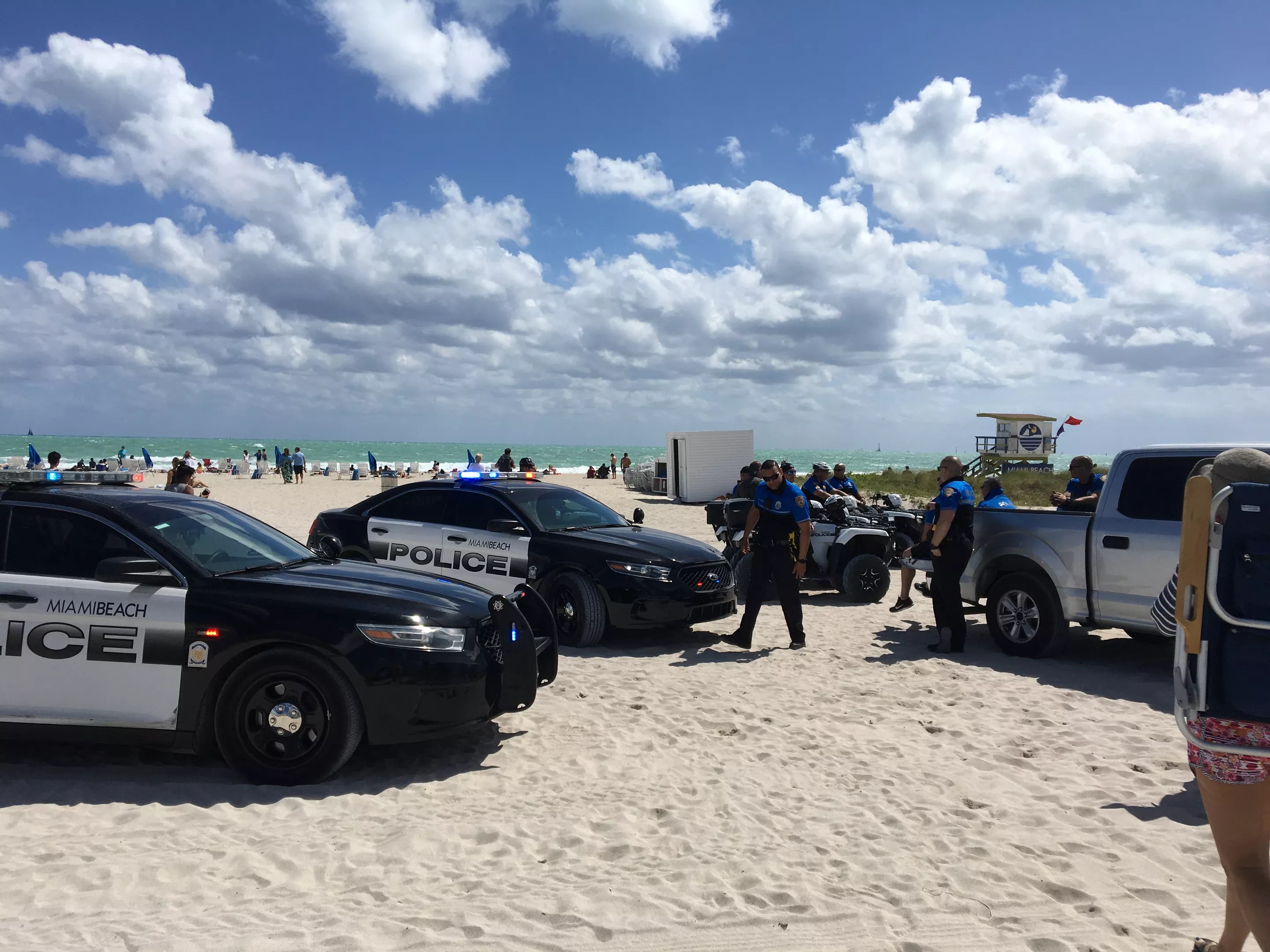
Brittany Shammas

Audio By Carbonatix
The City of Miami Beach is on a mission to purge any and all sources of crime from the island. For better or for worse, the city commission wants to take a hatchet to some of the most popular tourist destinations: First, the city proposed rolling back last call on Ocean Drive from 5 a.m. to 2 a.m., in a move that has made national news and stoked heated debate around town.
Now, commissioners also want to shut the city’s public beaches down two hours earlier, changing closing time from midnight to 10 p.m., in what’s pitched as a plan to protect tourists and residents from predators lurking on the sand at night. The beaches would still reopen at 5 a.m., as they do now.
“We all get the reports,” Commissioner Kristen Rosen Gonzalez, who sponsored the ordinance, said after introducing the idea at a September 25 meeting. She added with a laugh: “We all know nothing good goes on on the beach after 10 p.m.”
The rest of the commissioners unanimously pushed the proposal forward with virtually no debate.
“This is a good idea,” Mayor Philip Levine said with enthusiasm. The ordinance will be read for the final time at a city commission meeting next Wednesday.
Documents Rosen Gonzalez submitted along with the ordinance argue that a rollback would better match police patrol shift hours and would minimize “the opportunities for those looking to commit a crime on unsuspecting persons simply trying to enjoy a late-night walk on the beach.” (Of course, it would also make enjoying a late-night walk on the beach illegal.)
Rosen Gonzalez told New Times today she hasn’t received any pushback from residents thus far, adding she wishes “we could all frolic in the moonlight ocean and stroll on the beaches at night. Unfortunately, it is dangerous, and we need to communicate this to tourists.”
The proposal might not split residents quite as strongly as the liquor cutoff. Locals have long informally cautioned one another against hanging out on public beaches after
But in the past handful of years, those warnings have become
But some residents and visitors, watching the lights of ships drifting into the distance toward the Bahamas, still sit on the beach at night until they’re asked to leave.
Moreover, there’s still a debate over the seriousness of the city’s crime problem. City commissioners, police Chief Dan Oates, and beat cops can’t seem to agree on whether the alleged “crime problem” is really that bad or what to do about it. Rosen Gonzalez herself has been adamant that Miami Beach is a dangerous place. She was forced to apologize after emailing City Manager Jimmy Morales and claiming cops needed to be “given back their guns” and stripped of their body cameras. Rosen Gonzalez has also blamed marijuana decriminalization for the crime spike.
“There are thugs on the streets,” Rosen Gonzalez told New Times at the end of May. “There are people selling drugs openly on the streets in plain view when you walk down Ocean Drive. Why is that happening?”
But Rosen Gonzalez is far from the only official making that argument. Fellow Commissioner Ricky Arriola also tried to force the famed Purdy Lounge to close at 2 a.m. after an incident occurred nearby. And after violence occurred during the Memorial Day “Urban Beach Weekend” celebration, embattled Commissioner Michael Grieco called for the entire, informal celebration to end. Mayor Levine also demanded the city crack down on crime.
Likewise, residents and local business owners, including Sherbrooke Hotel owner Mitch Novick, regularly post videos of the arrests, robberies, car accidents, and street fights that occur night-to-night in South Beach. But other residents simply say this is the cost of living in a town known as a world party capital.
In June, Oates hit back against Rosen Gonzalez’s accusations. He released stats that purport to show that crime has dropped in the Ocean Drive patrol-district every year since 2013. Florida Department of Law Enforcement data backs this up: While the city does have a comparatively high property-crime rate, its rates of violent and overall crime were 1.5 times higher in both the cocaine-fueled 1980s and early 2000s. The data suggests this is far from the worst moment in Beach history for crime – but whether the problem today is bad enough to merit shutting the beaches down earlier is a matter of debate.